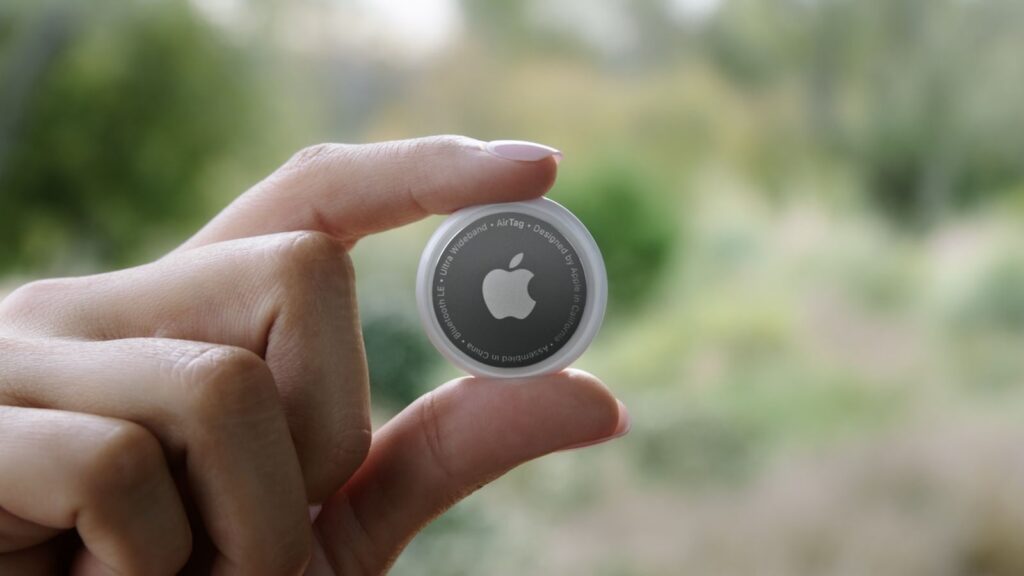Apple unveils new AirTags, but invites antitrust scrutiny

|
Getting your Trinity Audio player ready...
|
In its first event of the year, tech giant Apple has announced a range of new products, including its long-anticipated AirTags – a small, electronic tracker that can be attached to keys, a piece of luggage, or anything really, to help people keep track of their stuff.
The USD$29 gadget, Apple’s first new hardware product category in three years, integrates into Apple’s “Find My” software, and leverages its larger iPhone allowing people to locate any item they’ve misplaced with their iPhone with pinpoint accuracy, even showing an arrow on the screen of their iPhone when they’re searching for the lost item.

When something is outside of iPhone range, people can mark their items as lost, triggering more than 1 billion iOS devices to anonymously form a “search party” to help recover the item.
The whole process is anonymous and encrypted to protect users’ privacy.
communicates with the hundreds of millions of iPhone, iPad and Mac devices around the world via a secure Bluetooth signal to help users find lost items. When an AirTag is detected by a device in the network, the user will get
Apple’s AirTags compete with Tile, a startup company that has sold a similar device for more than a decade. Critics claim that Apple’s entry into the tracker tag product category will make it harder for companies like Tile to operate.
and, according to Reuters, have testified to U.S. lawmakers that Apple’s privacy practices have put Tile’s products at a disadvantage.
In a statement on Wednesday, Tile’s Chief Executive CJ Prober said lawmakers should examine Apple’s entry into the tracker tag product category at a US Senate committee hearing where Tile will testify.
“We welcome competition, as long as it is fair competition,” Prober said. “Unfortunately, given Apple’s well documented history of using its platform advantage to unfairly limit competition for its products, we’re skeptical.”
Apple said it had recently opened its iPhone’s systems to third-party tag trackers in ways that meet Apple’s privacy standards.
“We have worked from the very beginning of iPhone to help protect the privacy of users’ location data, giving them transparency and control over how all apps may access and share their location,” Apple spokesman Fred Sainz said in a statement.
“We have always embraced competition as the best way to drive great experiences for our customers, and we have worked hard to build a platform in iOS that enables third-party developers to thrive.”
Kirsten Daru, Tile’s general counsel, will testify this week before the U.S. Senate Judiciary Committee’s antitrust panel headed by Senators Amy Klobuchar, the Democratic chair, and Mike Lee, its ranking Republican. The hearing will focus on competition concerns from developers who rely on Apple and Alphabet Inc-owned Google’s app stores to reach consumers.
Apple and Google executives will testify as will executives from music streaming service Spotify and dating service Match Group, both of which have criticized Apple’s requirements to use its payments system and to pay commissions on sales from the App Store.
And in some cases, like Tile and Spotify, the companies don’t feel it’s fair that they’re paying money to Apple when Apple directly competes with their business through its own first-party apps.

